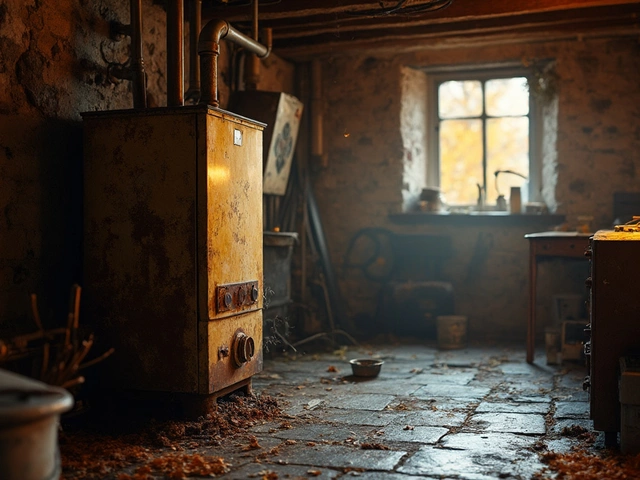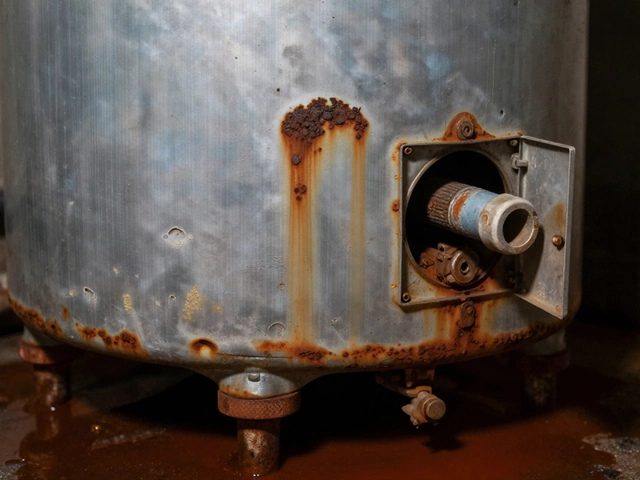Got a hiccup with your heat pump, oven or washing machine? You don’t always need to call a technician straight away. Below are clear, hands‑on tips that let you diagnose and often solve the problem yourself. Think of this as your quick‑reference toolbox for the most common home appliance issues in Bognor Regis and beyond.
Heat pumps are great for the UK climate, but they can lose their mojo. If the unit isn’t blowing warm air, start by checking the outdoor fan for debris and make sure the filter isn’t clogged. A simple reset of the thermostat can clear minor control glitches. For ground‑source systems, watch the pressure gauges – a sudden drop often points to a leak in the loop. Regular maintenance, like cleaning the indoor coil and scheduling a yearly professional check, adds years to the pump’s life.
When it’s cold outside, you might wonder if the pump is still efficient. The rule of thumb is that most modern units stay effective until outdoor temps dip below −15°C. Below that, a supplemental electric heater can keep rooms comfortable without overworking the pump.
Electric ovens that won’t heat usually have a faulty heating element or a broken thermostat. Unplug the oven, remove the back panel, and inspect the element for visible cracks or burns. If it looks damaged, replace it – the part is inexpensive and fits in most standard ovens. For ovens that heat unevenly, clean the temperature sensor and check the wiring connections.
Broken hob elements are another common snag. Turn off power at the consumer unit, remove the hob’s top cover, and locate the faulty burner. Swap it out with a matching replacement – most hob manufacturers label the part number right on the element. When dealing with a cooker that’s not firing, test each burner individually; a single bad coil often explains the issue.
Extractor fans can get noisy or stop working when the motor bearings wear out. First, give the fan a good clean – dust buildup creates extra load. If the noise persists, unplug the unit and spin the motor shaft by hand; resistance means the motor should be replaced. Most fans are designed for a 5‑year lifespan, so swapping them out before they fail completely keeps kitchen air fresh.
Dishwashers and fridges also have simple symptoms you can spot. A dishwasher that won’t drain usually has a clogged pump filter – pull it out, rinse, and reinstall. For a fridge that’s warm but the light stays on, the condenser coils are likely dirty; vacuum them and watch the temperature drop within an hour.
Finally, water heaters commonly reset because of a failing heating element or sediment buildup. Flush the tank once a year to remove mineral deposits, and check the element with a multimeter. If resistance is out of range, replace the element – it’s a straightforward DIY job.
These tech tips cover the most frequent problems you’ll meet around the house. While many fixes are simple, never attempt anything that feels unsafe – especially when dealing with gas boilers or high‑voltage appliances. When in doubt, call a qualified Bognor Regis repair expert to avoid costly mistakes.
Keep this guide handy, and you’ll save time, money, and the hassle of unexpected breakdowns. Happy fixing!

Wondering if that decade-old laptop should stick around or be kicked to the curb? This article dives into the practicality, challenges, and potential of keeping a 10-year-old laptop. With tips on upgrading components, performance tweaks, and sustainability, you'll discover whether holding on to an old device is a wise choice. Including pros and cons, this guide offers straightforward advice for the tech-savvy and beginners alike. Explore the balance between nostalgia and functionality in the ever-evolving world of technology.

Repairing an aging laptop can be a tricky decision. This article explores whether it's still worth investing in a 7-year-old device. We'll consider factors like performance, cost, potential upgrades, and environmental impact. Dive in to learn about the practical and sentimental value of maintaining your trusty laptop.

Replacing an old boiler might seem like a hassle, but when it's reaching the 15-year mark, the decision becomes crucial for efficiency and safety. This article explores whether it's time to upgrade, balancing costs, savings, and the impact on your home. From understanding energy efficiency to recognizing warning signs, we dive into everything you need to consider. With insights and practical tips, make an informed choice about your old boiler.

In the business world, appliances aren't just about the gadgets in your kitchen; they're tools and strategies central to operations. From simplifying daily tasks to enhancing efficiency, appliances play pivotal roles in various business aspects. Understanding their function means knowing how technology, devices, and smart systems integrate into business to drive productivity. Delving into real-life examples, this article provides insights and tips on leveraging appliances effectively.

Fridge warm but the light works? Find out why your refrigerator isn’t cooling, common causes, fixes, and when to call in an expert. Easy troubleshooting tips inside.

Water heaters commonly fail due to heating element burnout, thermostat issues, corrosion, and sediment buildup. Learn the top causes and how to spot them early to avoid costly repairs or sudden breakdowns.

When your boiler breaks down, taking a comfortable shower suddenly feels like a luxury. This article explains exactly what happens to your shower when a boiler goes out, ways to still get clean, and when you should call in a professional. Learn alternative methods for washing, bust some myths about cold showers, and get tips on preventing future breakdowns. We even cover what to do if you have kids or need to keep up with fitness routines. Staying clean during a crisis isn’t impossible—you just need a bit of know-how and some creative solutions.